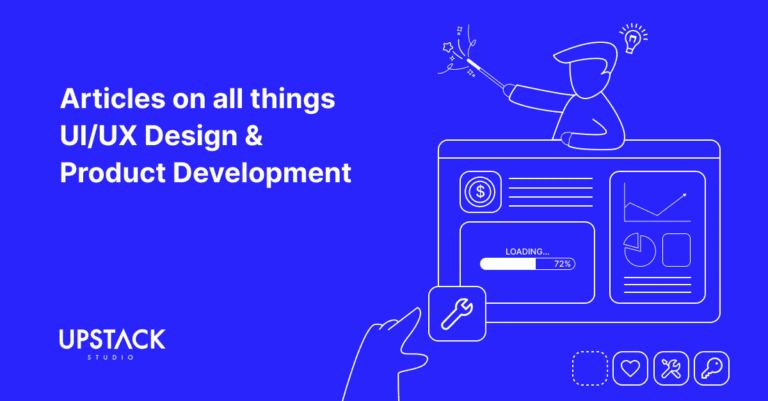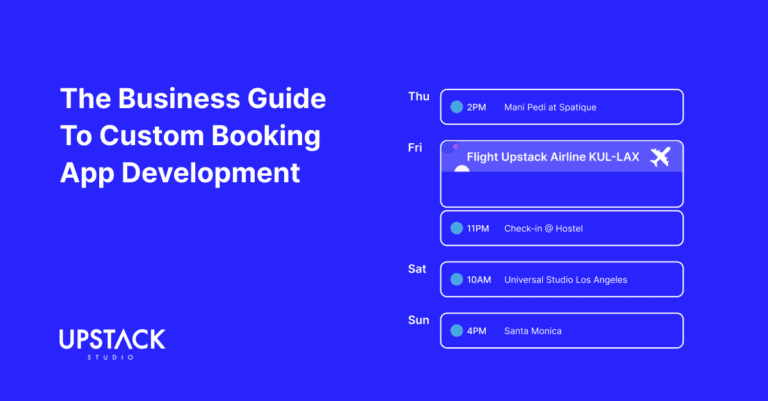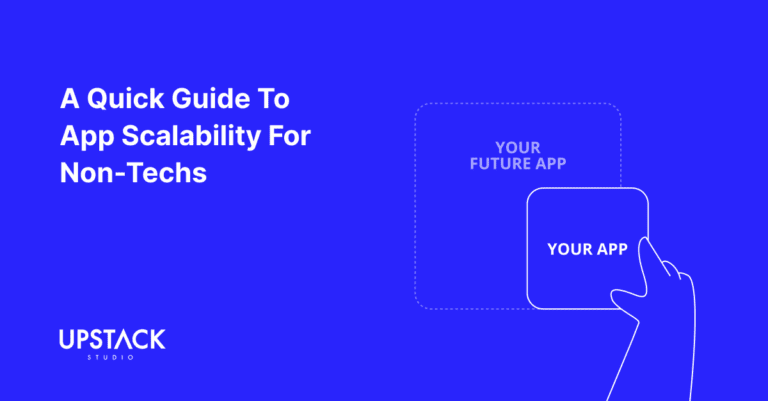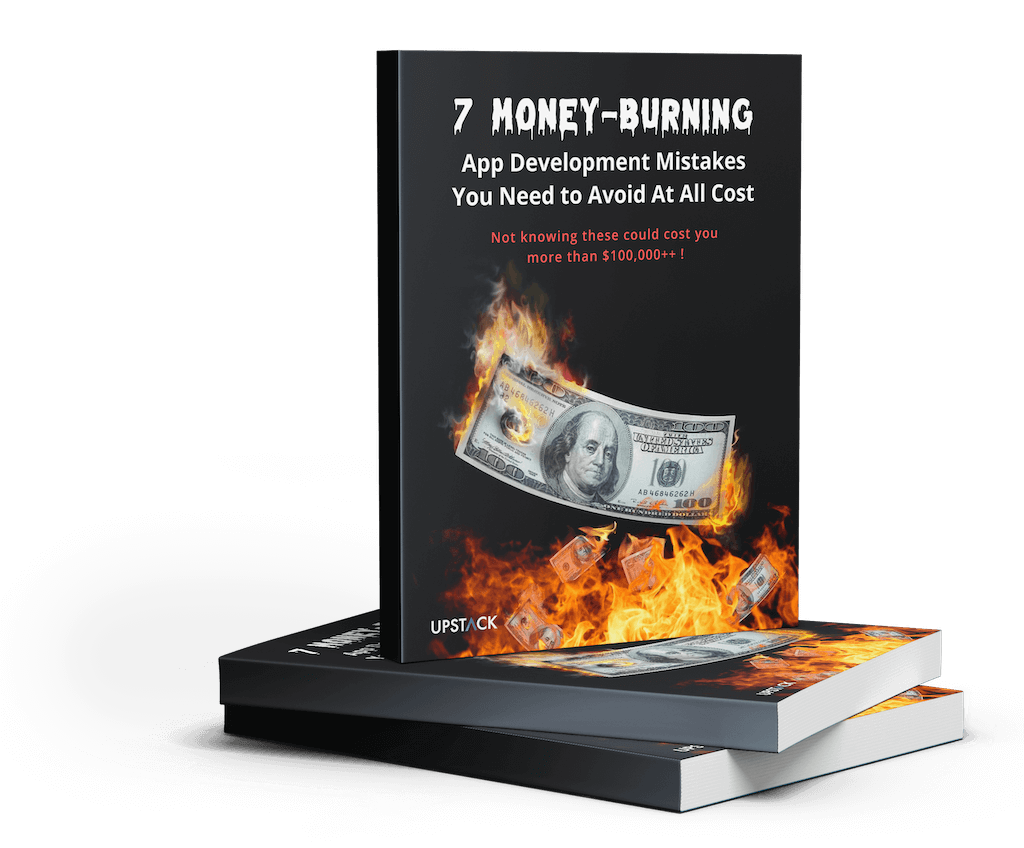No App Needs a Million Features
Imagine realizing half of your app’s ‘core features’ are completely useless.
AFTER launching.

It’s a common mistake new app founders can’t stop themselves from making.
They jump into app development without clarity, so they think ALL features are must-haves.
They end up spending way more time and money on early stage development.
At Upstack Studio, we sit down with potential clients to determine their app’s essential features.
It’s just four steps, and you can do it all on your own.
Let’s begin.
4 Steps to Identify What Your App Needs
Step 1: Identify Your User Persona(s)
A user persona is a fictional representation of your ideal customer.
At Upstack Studio, we give the user persona a name and combine our own research and second-hand information to create a profile that includes:
- Demographics: Age, gender, occupation, education
- Background: Work experience, lifestyle, and personal interests
- Goals: What the user is trying to achieve with your product or service
- Pain points: Obstacles they face in achieving their goals
- Tech-savviness, and: How they interact with tech and what influences their decisions
- Motivations: What drives their decisions
Remember, the same person can have multiple personas.
A woman could be a mother, a business owner, and a yoga enthusiast – three separate user personas each with their own goals, pain points, and motivations.
Once you have it, you go to
Step 2: Find Their Most Urgent Problems
The goal is to identify the most urgent problems preventing this persona from reaching a goal.
We start by listing down all the problems they face.
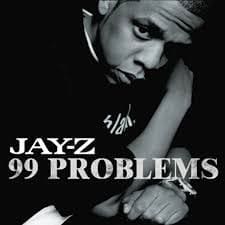
When there’s nothing more, shortlist the top three most urgent.
Why three?
Because the more problems you try to solve, the less attention each receives.
Solving ONE problem PERFECTLY will hook users way more than kind of solving twenty problems.
I want you to focus on solving problems REALLY well – and three is in my opinion, the limit for most people.
Here’s an example of a pressing problem we identified for a specific user persona.
Once you’re done here, it’s time for
Step 3: Define YOUR APP Value Proposition
Now you know who you’re helping and what you think they need help with.
Time to define how your app is going to help.

Be the piece that fills in the gap perfectly.
It’s always a good idea – in fact it’s mandatory – to do competitor research by:
- Checking their app store reviews
- Scrolling through their social media pages
- Asking people on Reddit and other forums
This is how you identify market gaps or unique selling points your solution offers.
Simpler pain points can be solved with one value proposition – that’s what we did here.
But more complex problems could need a bundle of propositions.
Here’s our example, a continuation of dear Chad from the previous section.
Just remember: Every successful product has compromises a competitor can exploit.
Now, time to give yourself a lobotomy.
Step 4: Brainstorming the App Features. Brain Dump!
The brain dump has two parts:
- The actual brain dump
- Prioritization
In the brain dump, you list out all the features your app needs to have.
Don’t ask questions like “Will this be too expensive?”, or “Is this practical?”.
We have time to be rational later.
For now, we brain dump – so let it all out.

Now go for a five minutes break, then come back and screen every feature with three questions:
- If I remove this, does my app still solve the persona’s main problem?
- If I remove this, does the app still feature?
- Did I list this down just because I think it’s cool?
You’ll find a lot of features are actually unnecessary.
In fact, a lot of them are there because you saw it on another app and got a bad case of FOMO.
You’ve become a chronic fomo-sexual.
Well good news, Upstack Studio is here to spread fomo-phobia.
Now that you’re cured, all you need is a proper app development schedule to follow.
And if you want to try out the real deal version of this exercise, check out our product roadmapping guide.
Good luck building!
If you’re looking to build a mobile application, check out our portfolio of past projects and contact us if you like what you see. Also, consider joining our mailing list for a one-stop resource on everything from micro-SaaS validation all the way to execution and promotion. Get a nifty list of questions to ask app developers when you sign up!
App Developer Interview Questions Template
Download this template now so you know exactly what to ask App Development Agencies! Let us know where should we send it through the form below.

